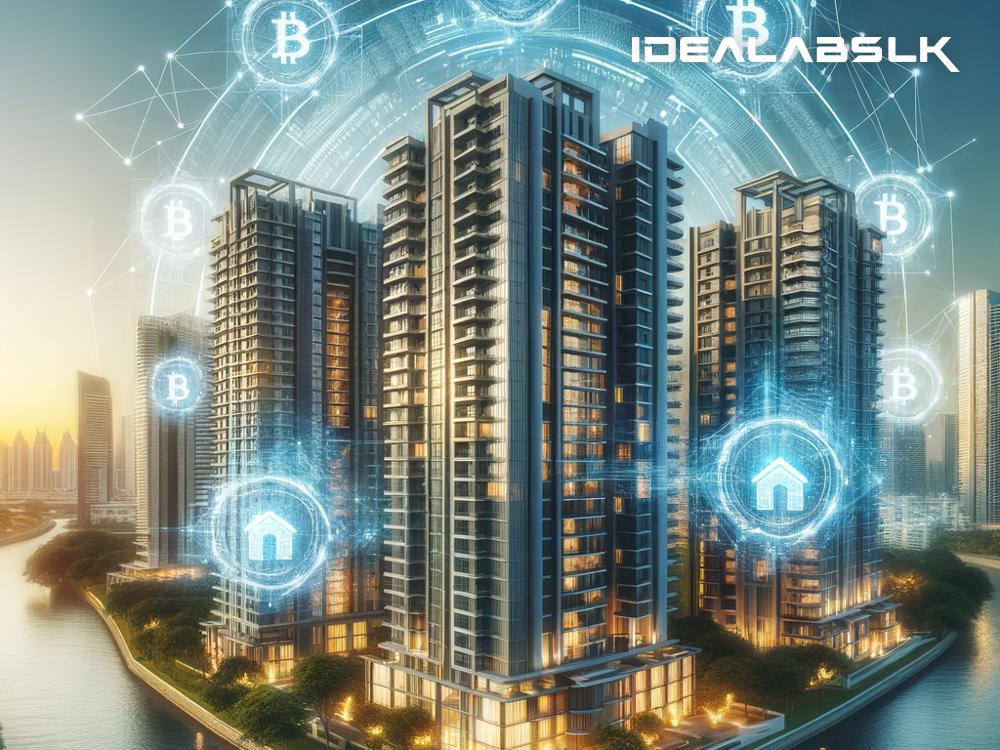Title: Unlocking Real World Value: How Blockchain is Transforming Real Estate through Tokenization
In the bustling world of real estate, owning a piece of property is often seen as a hallmark of success and stability. However, real estate investment comes with its fair share of complexities and barriers that can make it seem out of reach for many. Enter blockchain technology, a revolutionary digital ledger that is making waves across industries, with its impact on real estate being particularly noteworthy. One of the most exciting developments in this space is the concept of tokenizing real estate properties. But what does this mean, and how does it work? Let's break it down into simple terms.
What is Blockchain?
Before we dive into the specifics of tokenizing real estate, it's essential to understand what blockchain is. Imagine a digital ledger that is completely secure, transparent, and decentralized. This means that instead of having one central authority like a bank controlling it, a blockchain is distributed across a network of computers. Each transaction or record on the blockchain is verified by this network, making it tamper-proof and trustworthy. This technology underpins cryptocurrencies like Bitcoin but has applications far beyond digital currencies.
The Challenge with Traditional Real Estate Investment
Investing in real estate has traditionally been a game for the wealthy or well-connected. It requires significant capital upfront, not to mention the ongoing costs of maintenance, taxes, and legalities. Furthermore, the process of buying or selling property is often drawn-out and cumbersome, involving various intermediaries like agents, lawyers, and banks. This complexity not only adds to the cost but also makes it difficult for smaller investors to get involved.
Enter Tokenization
Tokenization is where blockchain shines in the real estate world. Simply put, it involves converting the value of a real estate asset into digital tokens that can be bought, sold, or traded on a blockchain platform. These tokens represent a stake in the property, much like shares in a company.
Let's break this down further:
- Digital Ownership: Each token is a digital certificate of ownership for a fraction of the property. This means you can own a piece of a building or land, even if you don't have the means to buy the entire property outright.
- Liquidity: By tokenizing property and selling these tokens on a blockchain, real estate becomes more liquid. In other words, tokens can be easily and quickly bought or sold, making it simpler to invest in and divest from properties.
- Global Access: Blockchain operates on a global scale, making it possible for anyone with an internet connection to invest in real estate tokens from anywhere in the world. This democratizes real estate investment, opening it up to a broader base of investors.
- Transparency and Security: With blockchain's inherent security and transparency, every transaction is recorded on a public ledger, reducing the risk of fraud and making it easy to verify ownership.
Real-World Applications
While the concept of tokenizing real estate might sound futuristic, it's already being put into practice. Projects around the world are demonstrating how fractional ownership of property can work. For instance, a luxury building in Manhattan might be tokenized, allowing investors from anywhere to purchase a stake in it for a fraction of what it would cost to buy an apartment outright. This not only makes investment accessible but also offers the potential for returns on investment through rental income and property appreciation.
The Future is Here
The implications of blockchain and tokenization in real estate are profound. We are looking at a future where barriers to entry in the real estate market are significantly lowered. Small investors can diversify their portfolios by adding real estate tokens alongside stocks and bonds. Meanwhile, property owners can unlock the value of their assets by selling tokens, providing them with liquidity without the need to sell off the entire property.
In Conclusion
Blockchain technology and the tokenization of real estate are opening new doors for investors and property owners alike. By breaking down barriers, enhancing liquidity, and ensuring security and transparency, this innovative approach has the potential to transform the real estate industry profoundly. While there are still challenges to overcome, such as regulatory hurdles and market acceptance, the path forward looks promising. As with any investment, it's essential to do your homework, but for those looking to dip their toes into real estate, the digital age offers exciting new opportunities.

